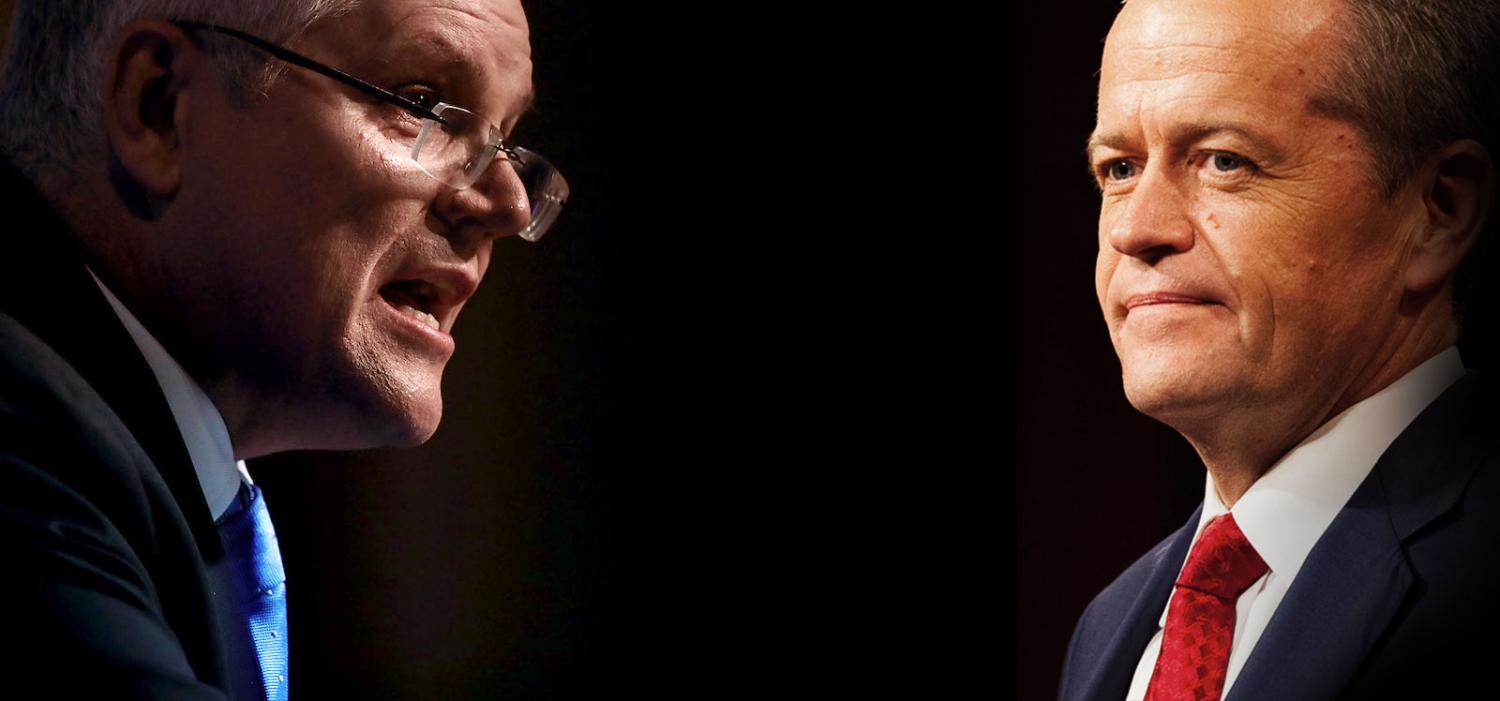The week that was on The Interpreter.
The next Australian election might not be decided by questions of foreign policy, but a turbulent world will undoubtedly shape the contest. This week, leaders of both major political parties delivered significant speeches on Australia’s international relations. Kelsey Munro after Labor’s Bill Shorten spoke at the Lowy Institute:
The soundbite is that ‘Labor’s foreign policy will speak with an Australian accent’. It’s a cute signal to Australian voters deeply worried by US President Donald Trump that Labor will reserve its right to act independently of the US, while neatly avoiding specifics.
Sam Roggeveen examined Prime Minister Scott Morrison’s speech at Asia Society.
It is fascinating to see how quickly the prospect of heightened rivalry between the US and China has entered the political mainstream. Morrison spoke of a ‘higher degree of competition’ and described China as ‘the country that is most changing the balance of power, sometimes in ways that challenge important US interests’ … Not too long ago, this kind of talk would have been considered somewhat controversial coming from a political leader.
Both leaders stressed the importance of the neighbourhood, but questions remain when both parties declare they want Australia to be the “partner of choice” for Pacific island countries. Jenny Hayward-Jones:
Why do Pacific island countries have to choose one partner over another? Isn’t it possible that they, like Australia, can manage relationships with a range of partners? Australia’s leading trading partner is China but its key strategic partner is the United States, and it manages many other forms of diplomatic ‘partnerships’.
And despites being the only country to occupy an entire continent, Australia’s own political islands don’t always align, after Victoria decided to sign on to China’s Belt and Road. Nick Bisley:
BRI has befuddled Canberra for a number of years … The federal government’s vacillation has put the opportunities of consultants, engineering, and professional services firms at a disadvantage and Victorian Premier Daniel Andrews sensed an opportunity. It has also handily been announced a few weeks out from a state election.
Speaking of elections, with the US midterms on next week, concern that Russia is at it again is back in the spotlight, and this time with the full glare. Sarah Logan:
US election officials have notified Russians suspected of involvement in online disinformation campaigns in the lead up to the mid-term elections that they were ‘on notice’, and that their work was being tracked.
But there will be no more elections for German Chancellor Angela Merkel, after she decided not to run again. Marcus Colla looks at an extraordinary career of both success and failure:
Her technocratic and compromise-driven brand of politics has well equipped her to manage the cascade of crises that have befallen Europe over the past thirteen years. In the static political universe of Angela Merkel, stability breeds trust and trust breeds stability. This is why the migration crisis of 2015 proved to be her most damaging moment.
Singapore executed several men by hanging, including 31-year-old Prabu N Pathmanathan, just at the moment his home country of Malaysia is moving to abolish the death penalty. Kirsten Han spoke with his family:
Singapore’s death penalty regime is notably opaque; imminent executions are not announced, and are usually only made known to anti-death penalty activists like myself when the family or friends of the inmate make contact. Prison officers, counsellors, medical staff, and executioners are all bound by the Official Secrets Act.
The killing of Saudi journalist Jamal Khashoggi reverberates still across the Middle East. Lydia Khalil:
There are deep concerns that the fallout from the Khashoggi affair will affect the strategic landscape in the Gulf and Middle East more broadly, as well as a lack of confidence in Saudi leadership.
His brutal death has also exacerbated fears about the international rule of law. Melinda Rankin:
As the US retreats from key institutions and Trump appears less inclined to lead his administration in support of international human rights, the death of Khashoggi reaffirms a potential changing of the guard … Countries such as Germany, France and the UK, anxious to protect the international rule of law, showed a willingness to ‘fill the gap’ by denouncing the alleged extrajudicial murder of Khashoggi and demanding accountability at the highest level.
And yet, as Elise Thomas observed, the consequences for Saudi Arabia, one of the world’s most lucrative markets for military hardware, should have been felt much earlier after its deadly intervention in neighbouring Yemen.
Whatever happened to Jamal Khashoggi was unquestionably a crime and a tragedy. It is, however, a painful reminder of the selective nature of international outrage that the death of a single, well-connected Saudi Arabian journalist was able to spark a conversation which the deaths of thousands of Yemeni civilians could not.
Finally, this weekend, a couple of hours flight from Australia’s eastern coastline, a territory will decide whether to become a nation. Alexandre Dayant with a primer on the New Caledonia referendum.
On Sunday, 174,154 voters will be called to the polls to say ‘yes’ or ‘no’ to independence. How and why has this moment arrived, who can vote, and what will happen next?
